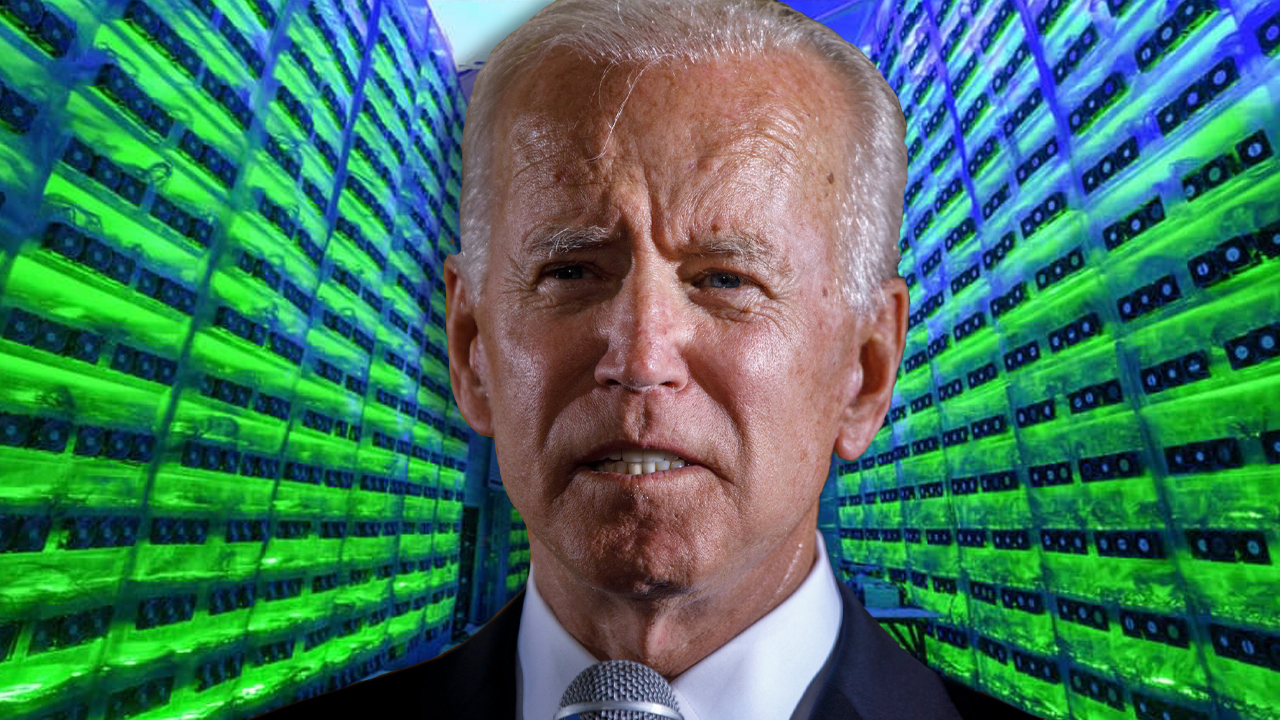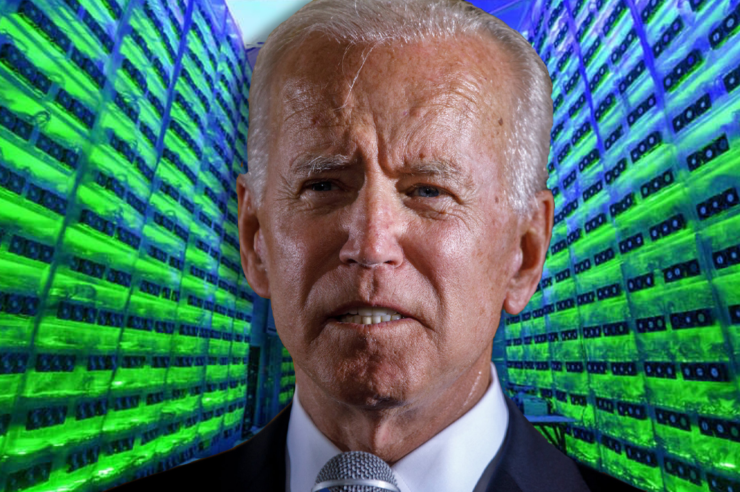
According to a new report, U.S. president Joe Biden and his administration are focused on proof-of-work (PoW) mining. The principal assistant director for energy for the White House Office of Science and Technology Policy (OSTP) discussed the research report on July 2, 2022. The OSTP official, Costa Samaras, said if digital currencies plan to stick around then it is important that these financial systems are “developed responsibly and minimizes total emissions.”
White House Eyes Bitcoin Mining and the Industry’s Emissions
A new report will be published by the White House in August according to the OSTP principal assistant director, and the study will focus on proof-of-work (PoW) mining and its effects on the environment. Constantine (Costa) Samaras detailed on July 2 that the Biden administration’s energy team plans to look at mining farms working with applied demand response programs, and the two most popular crypto consensus models, proof-of-work (PoW) and proof-of-stake (PoS).
“It’s important if this is going to be part of our financial system in any meaningful way, that it’s developed responsibly and minimizes total emissions,” Samaras told reporters at the news outlet Bloomberg Law. “When we think about digital assets, it has to be a climate and energy conversation.”
Bitcoin mining has received a lot of negative attention over the energy consumption used to confirm transactions and secure the PoW blockchain. However, two recent studies have shown contrarian views that highlight how BTC mining could actually be beneficial to the environment. For instance, one specific study shows that the Bitcoin network leverages 50 times less energy than the traditional banking system. Another environmental, social, and governance (ESG) report highlights findings showing bitcoin mining could potentially eliminate a significant amount of leaked methane, and stressed that no technology could do it better.
OSTP Official Says the White House Needs to Look at the ‘Appropriate Policy Responses Under a World That Shifted to Proof-of-Stake’ and the Security Benefits of Proof-of-Work
Despite positive studies, Samaras has seen the negative reports that have been published over the past year that say there’s “noise, local pollution, older fossil generators being restarted in communities — These are not trivial loads.” Samaras explained that the White House energy team plans research policy response concepts that are appropriate for PoW and PoS algorithms. “We need to think about what would be the appropriate policy responses under a world that shifted to proof-of-stake, or a world that has some continuous mix of proof-of-work and proof-of-stake,” Samaras remarked during the interview. The White House’s principal assistant director for energy added:
Proof-of-work is energy-intensive by design, but it also increases security.
The statements from Samaras follow U.S. president Joe Biden’s crypto executive order (EO) issued during the first week of March 2022. The crypto EO establishes a “national policy for digital assets across six key priorities.” The White House was supposed to establish the crypto-focused EO in February, but the Ukraine-Russia war started. In April 2022, U.S. representative Michael McCaul (R-TX) urged Biden to create a “robust strategy” so crypto cannot be used by international enemies to avoid financial sanctions. Currently, the upcoming White House report concerning crypto mining seems to be simply research, but many wonder if government policies could come out of the new study and Biden’s aggressive climate change strategy.
What do you think about the Biden administration’s plans to publish a report on crypto mining and its impact on the environment? Let us know what you think about this subject in the comments section below.
Image Credits: Shutterstock, Pixabay, Wiki Commons
Disclaimer: This article is for informational purposes only. It is not a direct offer or solicitation of an offer to buy or sell, or a recommendation or endorsement of any products, services, or companies. Bitcoin.com does not provide investment, tax, legal, or accounting advice. Neither the company nor the author is responsible, directly or indirectly, for any damage or loss caused or alleged to be caused by or in connection with the use of or reliance on any content, goods or services mentioned in this article.






















Comments (No)